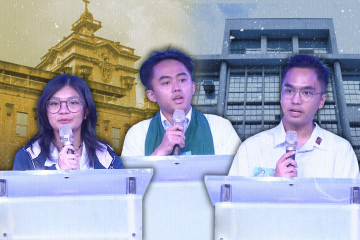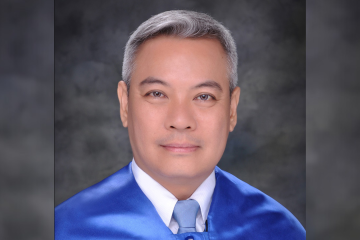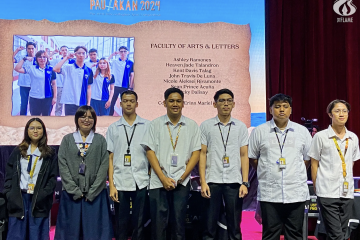
STUDENTS FROM local and international universities gathered at the University of Santo Tomas to understand the importance of diplomatic process and discuss global issues during the third UST Model United Nations (MUN).
International Relations lecturer Jan Michael Denila tackled the roles of diplomats, whom he defined as “inextricably linked with representation and communication” in their countries.
“As intermediaries, you have a certain responsibility to make sure that your [country’s] goals [and] national interests, are articulated properly,” Denila said.
Jesus Gary Domingo of the Department of Foreign Affairs Assistant Secretary for United Nations and Other International Organizations also defined a diplomat as “a messenger, a bearer of good news, and a bridge.”
Furthermore, the three-day conference also provided an avenue for the youth to simulate the experience of working in UN through the discussions of issues and international events concerning the member-states of UN.
“It (UST MUN) gives the people a bigger perspective on what is happening in the global scale. We are given more insights about more than a hundred countries that we are covering. It also gives the youth, empowerment ─ the power to make a change,” UST MUN Secretary General Dominique Reario said.
Participating students representing each member states were divided into four different councils namely the United Nations Educational, Scientific and Cultural Organization (UNESCO), UN Economic and Social Council (ECOSOC), UN Security Council (UNSC), and the UN General Assembly (UNGA).
The delegates convened to draft resolutions on matters such as preservation of cultural heritage sites, terrorism, and environmentally-induced human displacement.
UNGA, ECOSO and UNESCO successfully drafted resolutions addressing the issues assigned to them. UNSC, meanwhile, failed to do so because Russia vetoed the resolutions presented.
“The MUN allowed me and the other delegates to know the importance of teamwork because the most important thing about international relations is [that] you can’t do it alone,” said Ateneo de Manila University (ADMU) delegate Jan Christian Uy who represented China.
For De La Salle University (DLSU) delegate Vladimir Santos, who represented the Republic of Chad in UNSC, the event allowed him to see the power of veto in decision making. “I learned that we need to equalize the power of the veto system inside UNSC.”
Selected delegates that stood out in representing their countries in committee sessions were also given recognition. F CHRISTIAN DE LANO M. DEIPARINE and KRYSTAL GAYLE R. DIGAY



